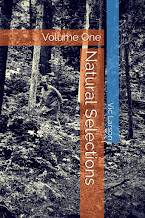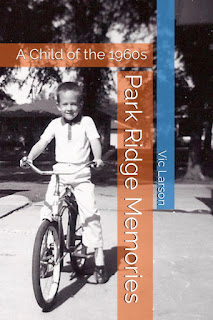I was not feeling well. Actually, I had a sudden screaming pain in my right side under my ribs. Is it a gallbladder attack? My lungs? Liver? Pancreas (e gads), or perhaps a misanthropic appendix taking revenge for all of that Dairy Queen of late? Note: I’ve always wanted to use the word “misanthropic.” I learned it from Charles Dickens and it’s fun to say.
“Hello, I’d like to make an appointment with my doctor,” I began.
“What are your symptoms?”
“I have a severe pain in my right side.”
“Do you have a fever, chills, body aches, sore throat, cough or shortness of breath?”
I wanted to say that I almost always have body aches, but this wasn’t the time to be a smart aleck.
“Well, yes, I’ve had a tickling cough for a couple of weeks, and I can’t breathe because of the pain in my side. It’s hard to catch my breath.”
“Have you had a Covid test?”
“Yes. It was negative.”
“Where were you tested?”
“CVS.”
“Oh. You need to have both a rapid and PCR Covid test at our facility due to your symptoms.”
“You mean the shortness of breath?” I asked.
“Yes, that.”
“But that’s because of the pain in my side.”
“I’m scheduling you for the test, and also for a TeleHealth appointment.”
“With my doctor? I can’t see him in person?”
“You need to get the Covid test,” she said.
“Ok, fine.”
“Your TeleHealth appointment is with your doctor’s assistant, an APRN.”
What the Hell is an APRN? I look it up. Advanced Practice Registered Nurse. Great.
Fast forward. I endured two more Covid tests. The ones where they stick a swab up your nose way further than the way I did it myself at the CVS drive thru. I guess that’s the point. Cool, I must have Covid. At least I’ll know why I can’t breathe and why I’m in such pain.
“Your rapid test is negative. Please log on to the link I sent you,” she says later that day.
“But my appointment isn’t for two hours.”
“Did you get the link I sent?”
“Yeah, hold on, I need to get my laptop.”
Sadly, my biggest concern was that I wasn’t dressed for this. I planned to at least comb my hair and put on a t-shirt with sleeves. Instead, I looked like I just woke up and got back from shopping at a Florida Walmart.
“What’s your blood pressure?” she asked.
“I don’t know.”
“Do you have a home blood pressure kit?”
“Yeah, but…”
“I’ll wait,” she said, and did.
“Bzzzzzz, bump, bump, bump,” went the machine.
“It says 145 over 92. That can’t be right. I always have really good blood pressure.”
“145 over 92,” she wrote, “What’s your pulse?”
“Oh, wait, I took off the cuff.” Had she mentioned this earlier I would have made note of the reading.
“Bzzzzzz, bump, bump, bump,” went the machine again. “It says 78. That can’t be right. My pulse runs around 62.” Both pulse and BP were no doubt elevated due to aggravation.
“78. Please hold, he will be with you shortly. Are you taking the following medications?” (she rattles off a series of drugs, mispronouncing most of them)
“No, I haven’t taken those in years. They were for different things at different times.”
“No meds,” she stated.
“Do you smoke?”
I’m starting to. (I didn’t actually say that.) “No.”
The laptop screen comes to life. All I can see are thick eyebrows and a forehead with ceiling tiles in the background. An adjustment is made. Now I can see eyes as well. The APRN appears to be East Indian and quite young. Young people generally know how to use computers.
“So you’re having shortness of breath and a cough,” he said.
“Well, actually a pain in my side, but I do have a slight cough and I can’t breathe because it hurts.”
“You probably have a virus other than Covid. I’m going to send two prescriptions to Walgreens. One will be a six-day steroid pack. The other will be an antibiotic.”
“Should we get a chest X-ray?” I prompted.
“Oh, yes, I was going to suggest that. (yeah, right) I’ll put an order in. You can walk into our imaging center any time.”
I’m there within a couple of hours.
Fast forward. Walgreens closes at 8 pm and doesn’t care if the orders that came in earlier in the day are complete. As a result, I have no medication for the pain in my side, and it is worsening by the hour. By 1:00 am, I cannot sleep. There is no position I can find that isn’t excruciating. I pace the floor, stretch, and attempt to breathe deeply but can’t. Eventually, I take a couple of extra strength Tylenol, then two more an hour later. At this point, I’m not concerned about my liver. I try to sleep sitting up, propping a pillow under my chin so my head won’t fall uncomfortably forward, resulting in an almost certain headache from neck strain. It is a very long night.
The next morning I am the first customer at Walgreens. After a short wait, I am handed three prescriptions. I expected two. The third is an Albuterol inhaler with no explanation of why I’ve been given this or how to use it. Whatever. I go home and swallow the first row of steroids in the six-day series of progressively shorter blister-packed rows. Within hours the pain begins to subside. I now understand how Oxycontin can so quickly become a problem, especially after day three, when my much shorter row of pills allows the pain to return. I need more of this.
“Hello, I really need to have an actual visit with my doctor. The pain in my side is now extending from my shoulder to my waist. I had a slight fever last night and still can’t breathe because of the pain.”
“You have a fever?”
“No, not anymore. Last night.” (I realized it was a mistake to admit this)
“Are you using the inhaler?”
“First of all, I didn’t know I was getting that, and I wasn’t told how to use it. But more importantly, I can’t use an inhaler when the pain in my side prevents me from inhaling. I feel like you’re not listening to me.”
“I will schedule you with your doctor. But first, you need to get a Covid test.”
“I had two of them a few days ago.”
“That was before you had a fever. We have to make sure.”
Fast forward. The doctor refuses to see me in person, but at least he knows how to aim his laptop camera to capture his full face. He says the additional Covid test isn’t necessary. I don’t present like a huffing and puffing COVID-19 patient. Probably because I am sitting still.
He proceeds to tell me that I most likely strained my intercostal rib muscles while coughing. He prescribes me two weeks of Meloxicam. It has been five days since my chest x-ray. He mentions that I have fluid in my right lung, the one near the pain that was my original complaint. Whatever fluid was in that lung has now been there for five days, probably having fluid babies and growing a fluid family.
He puts my on a short course of Lasix (water-removing pill) and a potassium supplement to counter the electrolyte-depleting action of the Lasix.
“Does that sound like a plan?” he asks.
“Yes, but I should probably mention that I’ve been coughing up a little blood.”
“Well, that’s alarming for sure. But small amounts are not a concern. They may be originating in your nasal passages and traveling down your throat.”
A pattern has emerged. Everything I say travels up the branches of a decision tree to a box that says, "That's nothing."
I now repeat the Walgreens experience, but this time I show up in the store before closing. They have had my order in their system all day and are clearly planning to make me wait until morning. I plan to refuse to leave until I get my meds. I envision police action, me carried off in cuffs demanding my rights and ending up a Florida law enforcement casualty on the Lester Holt evening news. Florida Man. They produce the prescriptions. No ruminated police were necessary. I gobble the new pills the minute I get home.
This is not the end of the story. I am still advocating for my care, demanding that tests be done properly and completely. You might recall that I ran blood tests in a hospital for eleven years. I know more than enough to be dangerous. Doctors find that to be a bit off-putting, though I am kind when I ask them to raise the bar on terminology and reveal my background. I don’t pretend to be a doctor. But if I were one, I would hopefully listen to my patient and attempt to find underlying causes instead of just treating the symptoms. At that point they are not practicing medicine, they’re practicing insurance.
To read the rest of this story and more than seventy others, please consider buying Park Ridge Memories on Amazon. Click on the image below.
😎
If you like fiction and you're in the mood for over 50 short stories, please consider buying "Natural Selections," at Amazon.com.
Or if you'd prefer seventy non-fiction stories inspired by a town in Illinois, please consider buying Park Ridge Memories also on Amazon. Click on the image below.













